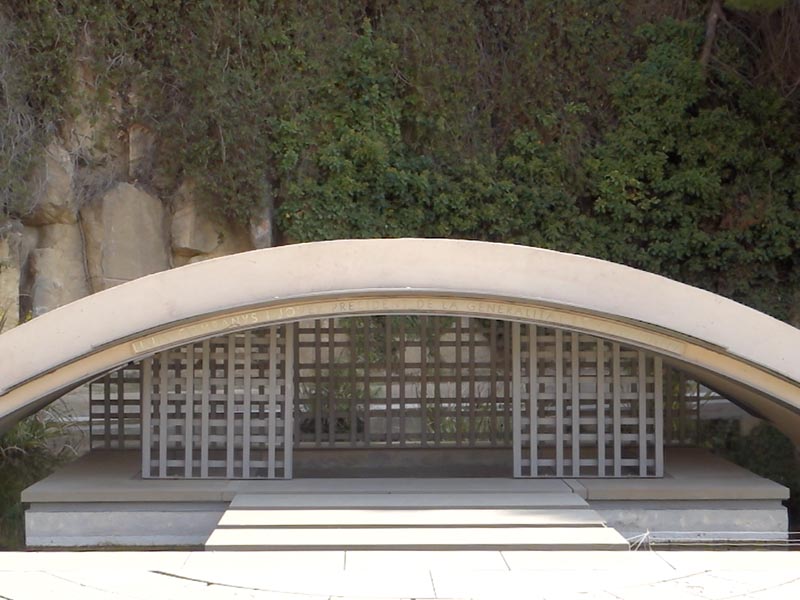Lluís Companys
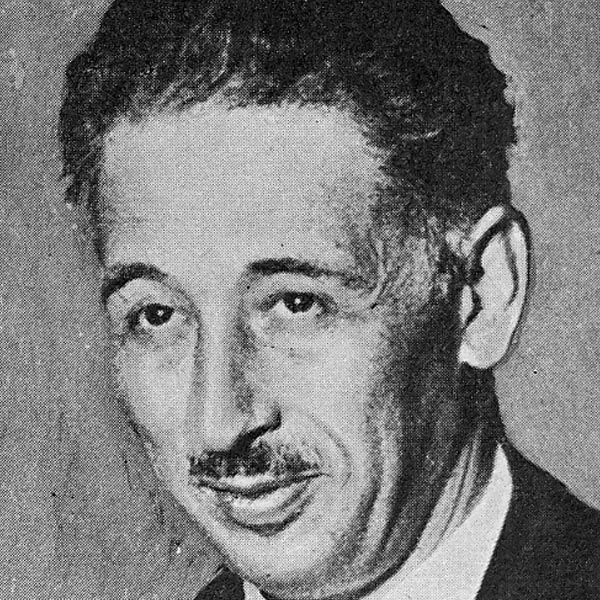
Name:
Lluís Companys i Jover
Role:
President of Catalan Government
Born:
1882, El Tarròs, Urgell, Catalonia
Died:
1940, Montjuïc, Barcelona, Catalonia
Affiliation:
Republican Left of Catalonia
Josep Maria Figueres explores the life of Lluís Companys Lluís Companys was a lawyer, journalist, labor leader, member of Barcelona’s city hall. He stands in solidarity with his great friends Francesc Layret and Salvador Seguí. They represent the unions’ most intellectual viewpoint within working-class movements. There is even sympathy for anarcho-syndicalism, especially with his founding of the Tillers Union of Catalonia. He is one of the founders of this agrarian trade union. In the city, there were already trade unions, controlled by CNT-FAI, but not in the countryside, other than the conservative Saint Isidore’s Catalan Farm Institute, which lacked power. He organizes it in the 1920s, visiting all the country’s winemaking regions, even creates the weekly La Terra. So a very active person. This is why he identifies so strongly with the great violence in the 1920s. His teacher and friend, Francesc Layreit, and Salvador Seguí, the “Sugar Boy” are killed. With other union heads, he’s deported to La Mola, which will solidify his link with left-wing Catalanist republicanism. Lluís Companys is the face of republican, left-wing, Catalanist power in the countryside. But he doesn’t represent the more inflexible Catalan nationalism of Francesc Macià. Companys will fight the Primo de Rivera dictatorship. This fight for a republic and against the dictatorship will earn him the love of the people. He will be arrested repeatedly. He becomes one of the faces of republicanism, so in 1931, when Macià proclaims the republic, he has this link. Thanks to a number of alliances, upon Macià’s death, he becomes the Generalitat president. This will lead to a tragic situation. after the first two years of the Republic, with the right-wing victory of 1933.
Robert Surroca discusses Lluís Companys Lluís Companys was a very controversial politician. Though, all politicians are controversial in their time. They have enemies and they’re demonized. He was controversial during the time of the Republic because of a divorce, and then living with Carme Ballester out of wedlock. Totally acceptable today, but back then, it was a sin and greatly criticized. On top of that, he was a left-wing Catalanist republican. He became president of the Generalitat, a totally convinced Catalanist. And he showed courage. Because when the civil war broke out.. …there had been revolutionary excesses that inspired the rise of fascism… Many FAI members went after right-wing people, even priests, and they ended up killing each other. Some argue that as the president it was responsibility to put a stop to it, but he couldn’t. When the military staged the coup, the anarchists entered the Sant Andreu barracks and seized all the armaments. The street was theirs. He did everything he could, and he did a lot. Two advisors in the Generalitat, the cultural advisor, Ventura Gassol, and the government advisor, Josep Maria España. Both had to go into exile for following Companys orders, by providing safe passage to religious and right-wing people. So they could escape being killed by the FAI militias. He was controversial. People argued about him. But his capacity to confront his enemies, and the dignity he showed during the trials… The nationalist rebels blamed him for their rebellion. It’s a caricature of military justice, and what occurred under Francoism. The courage, boldness, and dignity he showed in front of the firing squad made him one of the most important characters of our time.
Teresa Abelló discusses Lluís Companys and his relationship to the working class. Republican leaders had a peculiar relationship with the CNT in general. The CNT’s base is rooted in republicanism, so the relationship is complex. The CNT, the anarcho-syndicalist movement, adopted a rule in all of its congresses, which was that the union was apolitical. Now this apoliticism within the CNT did not mean that its members were apolitical. The numbers wouldn’t have made sense, otherwise. What do I mean by that? Well, many republican party members and sympathizers were active in the CNT. So this led to a strange, complicated relationship. We talked about the FAI earlier. They were critical of this situation. What happens to CNT leadership and its members? Well, the CNT’s members have frequent legal problems, Where did union lawyers, or as they’re called now, labor attorneys, come from at that time? They’re normally republicans, or come from within republican ranks. This ensures there is understanding, and a good relationship between republican party leaders and CNT members. And somehow, they’re all part of the opposition. Specific to Catalunya, this is a relationship with a long tradition, back to the republican politics of the 1920s, with Francesc Layret, for example, and Lluís Companys. Both occupy the same political space, both were labor lawyers. They were labor lawyers when union members needed them most. This doesn’t mean that Companys was a CNT member. Not at all. He never was. Other politicians, like Francesc Macià had a much more free-flowing relationship with the CNT. But they were their attorneys, and the relationships were strong. Companys had a great affinity for the Tiller’s Union, which was a non-anarcho-syndicalist field union. Naturally, this inspired great loyalty.
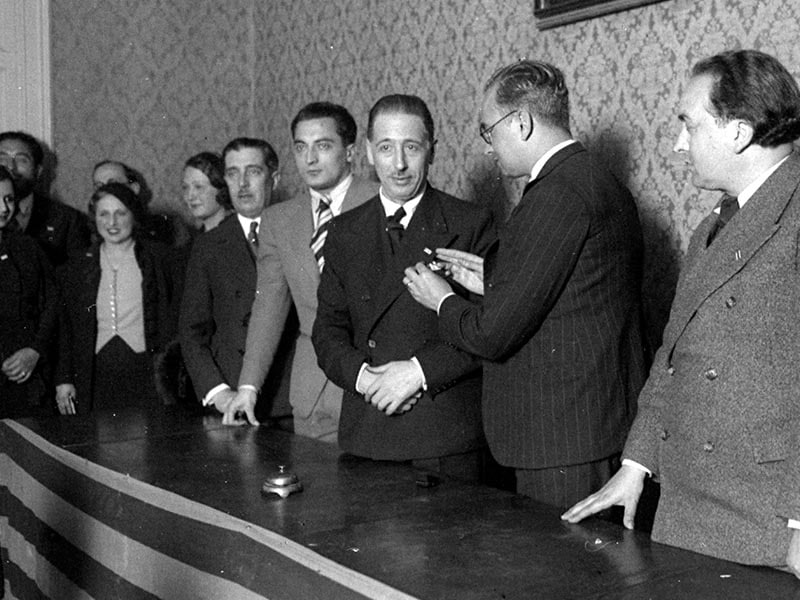
1933 – Lluís Companys receiving an honor from Josep Dencàs.
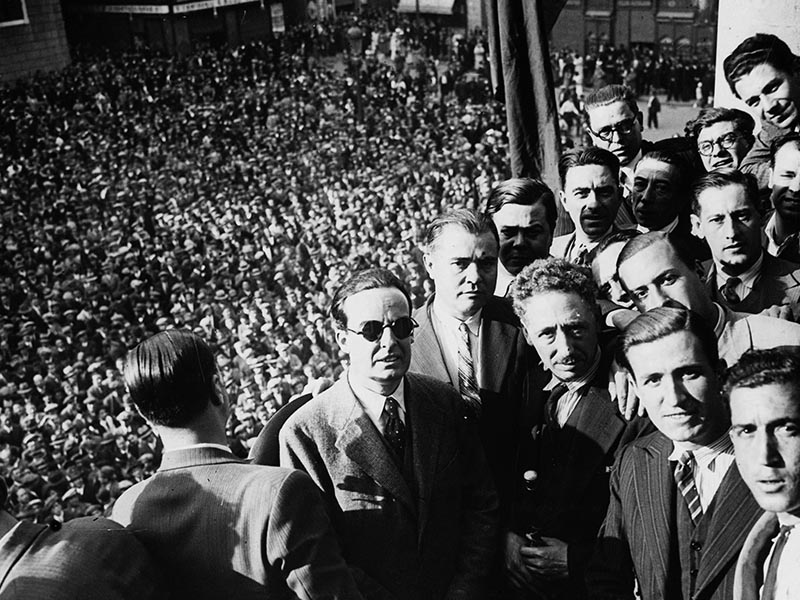
1931 – Proclamation of Republic. Lluis Companys on hand.
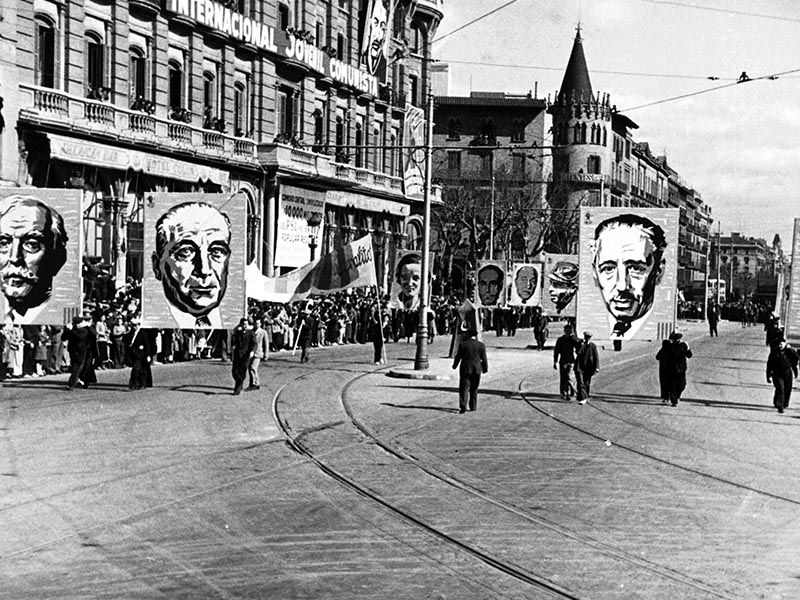
1937 – Electoral parade during the Republic with Lluís Companys poster on display.

1934 – Lluís Companys, President of the Generalitat of Catalonia, cuts a melon in Tarròs,
